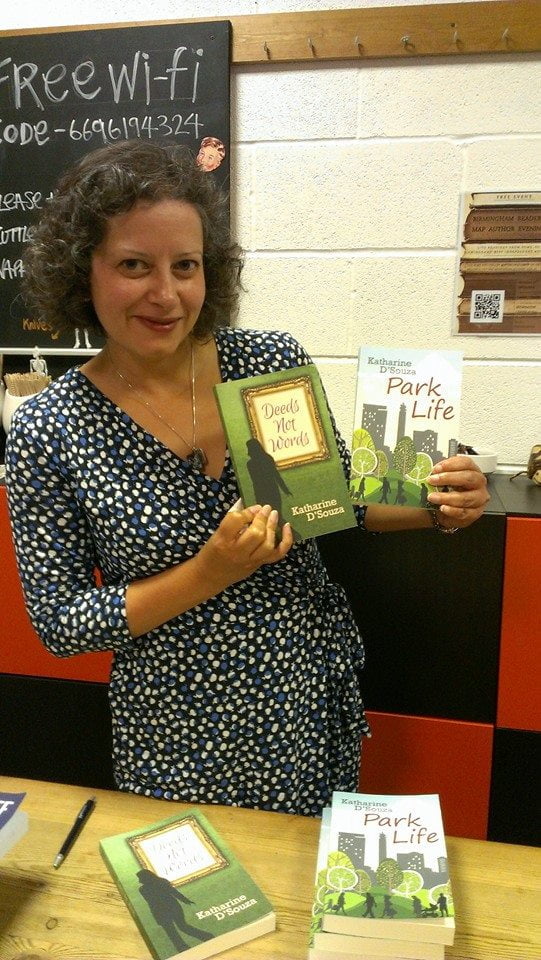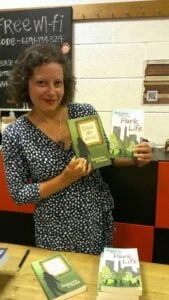Drawing on her own experience of self-publishing, British indie novelist Katharine d'Souza explains how to respond positively to constructive criticism to make your writing the best it can be without denting your confidence.
I’m an avid reader so I attend a lot of book events: launches, author talks, literary festivals and the like. I’m also a writer who likes a chat so can often be found talking to others at the event about books in general and writing in particular. Often, after I’ve mentioned that I write, my new friend will reveal, ‘Oh, I write a bit as well, but I’d never show anyone…’
I understand where this comes from. In writing we might express thoughts, feelings and opinions via the mouths/minds of our characters of which our friends and family might not approve. Creating anything means taking risks, and writing is such a quiet process that maybe those friends and family don’t even know we’re doing it. Exposing our creations to criticism takes guts but self-publishing, without first asking for and acting on feedback, would be reckless.
The Rewards of Risk-Taking
Once upon a time I was too shy even to express the hope that one day I might, perhaps, consider trying my hand at writing. The first time I read my work out loud to a writers’ group, my voice shook and the paper trembled in my hands. Now, I’ve self-published two novels, have a third on the way, and have stood up and read from my work at numerous author events of my own. I write because I want to communicate. I show my work, but I’ve taken steps to reduce the risk.
First, I showed my work to friends and family. They were, on the whole, impressed and supportive. Which was great, but not helpful. These were the people who’d be interested in what I had to say because it was me, not because of any qualities of the piece. I needed independent opinions.
So I joined a writers’ group, paid for a manuscript appraisal, exchanged critiques with fellow authors. I even submitted my work to literary agents and traditional publishers. I showed my work to others, and then I listened.
Hearing your work criticised for the first time is painful. It’s also a hurdle we all have to clear if we want to improve our writing and eventually find the audience we were hoping to communicate our stories with. Even then, not every reader will love our books. We may receive the dreaded 1-star reviews. Can’t please all the people …
The Positive Approach to Receiving Critiques
What I always advise those authors too timid to share their work is: do.
Show, and listen. Because what you hear will improve your writing.
Even if you don’t agree with a piece of criticism, it’s valuable to hear it, to consider it and work out what was behind it. If your critical reader found your plot implausible, could it be because they didn’t read it closely, or have you missed out any vital information? If they hated your main character, is it because they don’t enjoy your genre, or are you not letting your character display enough charm?
I’d recommend anyone to find a safe space to share their writing – a trusted writer friend, a supportive but constructive writers’ group, or an editor who’ll take their time to understand what you want to communicate before advising on how to enhance your work. But, ultimately, show people your work, listen to their opinions and then redraft. Only then will you be ready to actually be read.
 EASY TWEET #Authors – why the best attitude to critics is to show & listen by @KatharineDS https://selfpublishingadvice.org/show-and-listen/ via @IndieAuthorALLi
EASY TWEET #Authors – why the best attitude to critics is to show & listen by @KatharineDS https://selfpublishingadvice.org/show-and-listen/ via @IndieAuthorALLi
OVER TO YOU What's your top tip for dealing effectively with reader feedback? We'd love to know!






[…] Want to improve your writing? Rachel Gardner lists 11 ways to become a better writer without writing, while Katherine D’Souza advises us to show and listen. […]
No problem, YC! Glad you found it useful. Pleased too that you’re engaging with the critiquing process. Sounds as though your sister-in-law is a great person to have on your team and you were right to take time to reflect on her comments before responding. Best of luck with your writing.
This advice came at a perfect time. I just received a comprehensive critique from a writer who also happens to be my sister-in-law. It was a great way for me to test the waters, since she is a trusted friend who could give me constructive criticism. My head spun when I received her detailed report and her list of questions, and I waited a while to reply to her email without sounding overprotective of my work. But I’m glad I went through the process. Sometimes we get too attached to our work and we can’t find anything else to improve on, when it’s right there on the page.
Thank you for your wonderful advice, Katharine!
A good subject! When I began sending MS around, it was still possible to have a rejection letter be a whole side of A4 full of comments. These were immensely useful! When I was working on the novelI eventually published (Baby, Baby, 2010) I sent the MS to a professional for a critical read. By then I’d gathered the courage to pick carefully through the comments: just as you say: it’s all mixed and we should have the courage to think through each and weigh it up. And use beta readers, too.
I like it that you say you ‘write because (you) want to communicate’: that’s how I’d sum up my reasons. It may possibly be an apparent paradox: the desire to communicate being a big reason why at the start criticism may be especially painful for writers. Having your writing apparently ‘junked’ feels like someone attacked your kids (or similar, depending whether the writer has kids, of course). We can get fierce, or tearful, depending on our personality, and fearful of further exposure. Our lovely communication of our deep selves has been thrown back at us. But only so it can become the best it can be, we need to tell ourselves!
Absolutely. It’s that balance between being a sensitive, empathetic soul and having rhino hide around your feelings towards your work. No-one ever said writing was easy!
Thanks, Liz! Confidence in your writing has to be built, as does the ability to judge the usefulness of feedback you receive. And thanks for the pic 🙂
Great advice here from Katharine. If you never show your work to anyone, it will never go any further! I particularly like the caveats, that it might be the book or it might be the reader. (Oh, and thanks for the photo credit!)